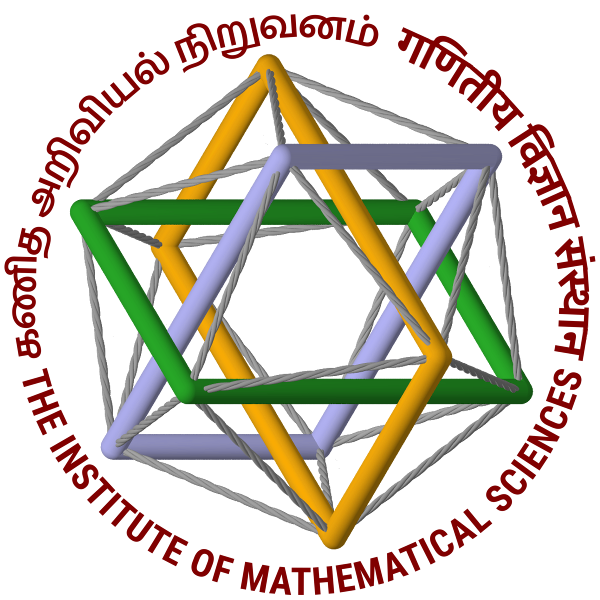A national institute for research in the theoretical sciences
Upcoming Events
Jul 11
11:30-12:30
11:30-12:30
Suraj Kulkarni | IMSc, Chennai
Mathematics Seminar | E C G Sudarshan Hall
Jul 11
11:30-13:00
11:30-13:00
Koushik Ray | IACS, Kolkata
Conformal Integrals and GKZ systems
Physics Seminar | Alladi Ramakrishnan Hall
Jul 14
09:30-18:00
09:30-18:00
Teachers Workshop (KV/JNV/AECS) | Teachers Workshop (KV/JNV/AECS)
Teachers Workshop (KV/JNV/AECS)
Conference | Chandrasekhar Hall
Jul 14
09:30-18:00
09:30-18:00
Teachers Workshop (KV/JNV/AECS) | Teachers Workshop (KV/JNV/AECS)
Teachers Workshop (KV/JNV/AECS)
Conference | Room 326
Jul 15
09:30-18:00
09:30-18:00
Teachers Workshop (KV/JNV/AECS) | Teachers Workshop (KV/JNV/AECS)
Teachers Workshop (KV/JNV/AECS)
Conference | Chandrasekhar Hall





